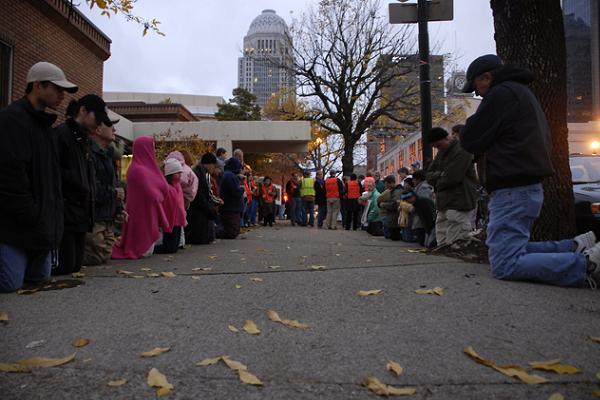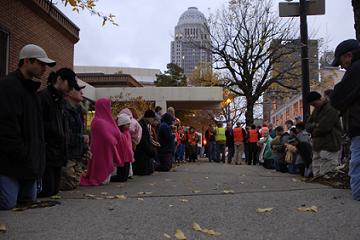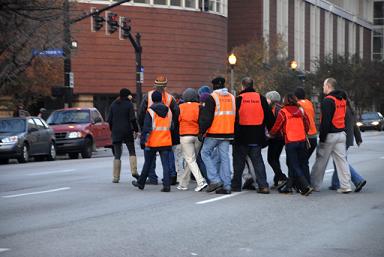
Photos courtesy of author.
It’s 7:20 on a Saturday morning.
Three couples huddle under the Louisville clinic’s awning, waiting for the doors to open. Across the property line, several protesters implore the clients to change their minds. “We love you.” “This is murder.” “There’s a heartbeat.” “Come with us, get a free ultrasound, look at your baby.”

